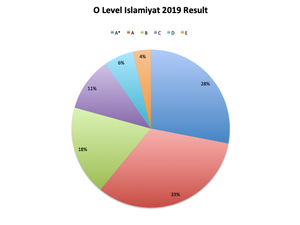
Hazrat Uthman and his caliphate
Q1 a ) Outline the reasons for the unrest against Hazrat Usman write an account of the rebellion in Madinah that lead to his martyrdom .
B )Umar and Usman stood by what they believed to be just, were martyred for the the positions they took. Can lesson be learnt from their martyrdom.
Ans ) The first half of Hazrat Usman ‘s reign was a really peaceful and successful one . However difficulties, rebellions and unrest soon began to emerge due to certain reasons.
Firstly, Hazrat Usman as compared to Hazrat Umar (R. A ) was a lenient ruler who laid less control over his governors and allowed them a free hand in running the government. This led to many governors becoming ignorant and complacent. Some of them such as Marwan were not loyal to the cause of Islam. They carried out certain conspiracies that went unnoticed by Hazrat Usman (R.A) . This leniency resulted in many problems leaving certain charges on him such as appointing his own relatives as governors, burning the word of Allah ( Quran ) and being extravagant .
Secondly , Abdullah bin Sabah a Yemeni jew began to conspire against the muslims . He inculcated differences amongst Banu Ummayyad, the tribe belonging to Hazrat Usman. Banu Hashim, Hazrat Ali’s tribe by saying that Hazrat Ali (R. A) Should be the rightful successor to Hazrat Umar (R. A) And hence causing rift amongst the muslim community.
Thirdly, were the differences between Arabs and non-Arabs. Hazrat Usman had granted large amount of land to the Quraish and the other communities, they saw this as favoritism to his own kinsmen. This developed feelings of suspicion hatred and disunity amongst the muslim ummah leading to oppositions against Hazrat Usman ‘s rule.
Moreover , Hazrat Usman had appointed his relatives as governors which was a source of discontent amongst masses. Although the reality was that he was just carrying the system of Hazrat Umar (R. A ) forward. However all failed to understand this and it eventually led to unrest against him as he began to lose support from various groups.
Furthermore, Hazrat Usman had standardized the Quran as he had been reported by the commander of muslim army Hudaifa bin yaman of the differences dialects in reading Quran . Thus eliminate differences and confusions, he burned the previous unauthentic copies so as to permanently establish Quran ‘s divinity ,however many mischief mongers began to raise voices that he had burnt the word of Allah . This raised the religious sentiment of various muslim groups who without the least understandings ultimately began to oppose Hazrat Usman ‘s rule.
All these events led to Egyptian rebels undermining the authority of Hazrat Usman
During all this Hazrat Usman (R. A ) from his root reminding them of his relationship with prophet (s a w ) and his services rendered to Islam . However all went in vain. And upon seeing that most of his companions and supporters were gone for Hajj, they besieged his house and only allowed him to go out for prayers. Hazrat Usman wanted to prevent bloodshed hence he restrained from sending his army against these rebels despite his companion’s suggestion who managed to reach him . Those who later tried to get in like Talha bin Zubair were brutally treated. All this ended when one day while Hazrat Usman was reading the Quran and suddenly the rebels poured in his house stabbed him with swords. When his wife Naila tried to protect him, her fingers were chopped out and Hazrat Usman ‘s head was chopped off which eventually lead to his martyrdom .
B ) Great lesson can be learnt from the martyrdom of Umar (R.A ) in terms of upholding justice at all costs may it be in social , economic or political aspects. This ensures equality for even minority community that would cater to the welfare of whole muslim ummah. From Hazrat Usman’s martyrdom , muslim leaders can learn to trust Allah above all as the giver and taker and likely to uphold peace in all situations by preventing bloodshed like he did by not calling his army against the rebels. In this way, a peaceful society would be established promoting faith in Allah’s decision.
Write an account of the expansion of Islamic empire during the caliphate of Hazrat Uthman./10
Hazrat Uthman consolidated the military management established during the reign of Hazrat Umar and continued the chain of conquests. During Hazrat Uthman’s caliphate Muslim dominions had expanded, considerably in the east and in the west.
After six months from Hazrat Umar’s death, the Persian King Yazdigard, who was in exile made another attempt to instigate rebellion in the country against the authority of Islam. Hazrat Uthman quelled the rebellion with an iron hand, thus bringing many Persian kingdoms like Kabul, Turkistan, Hisraf, Ghazna and Balkh under the sway of Muslims.
In 30 A.H/650 A.D most of the Khusran including Nishapur, Tusmaru fell to the hands of Muslims.
Syria was very important to the Muslims and it was efficiently ruled by Ameer Muawiya who in addition was given the charge of Damascus. Then the Caesar of Rome threatened Muawiya by the approach of an army, in the 2nd year of Hazrat Uthman’s caliphate and the Roman army defeated.This resulted in the successful conquest of Asia Minor.
Then Ameer Muawiya’s army advanced to the island of Cyprus with the permission of the caliph and occupied it.
In the west, in the year 26 A.H/646 A.D the Romans soldiers landed at the port of Alexandria and took possession of the town. Hazrat Amr bin Aas, the Muslim governor drove them out and recovered that port. After a few months Amr Bin Al Aas was replaced by Abdullah bin Saad, Hazrat Uthman’s foster brother
In 31 A.H/651 AD, the Roman emperor sent a fleet of 500 vessels invade Egypt. A bloody battle was fought. Abdullah bin Saad met the enemy with great force in this naval war and Romans were defeated.
Hazrat Waleed bin Uqba was sent as a a commander who then brought Armenia and Azer baijan under the flag of Islam.Hazrat Abdullah bin Zubair conquered Algiers, Moroco and Spain, though the enemy strongly resisted. In the words of Zuhri “ The first seven or eight years of Hazrat Uthman’s caliphate were a reminder of the glorious rule of Hazrat Umar. During this time he ruled with great reputation and was more beloved by the Quraish than Umar. Several victories were won, many golden leaves were added to the history of Islam and the crescent flittered right from Morocco down to Kabul.”






Comments